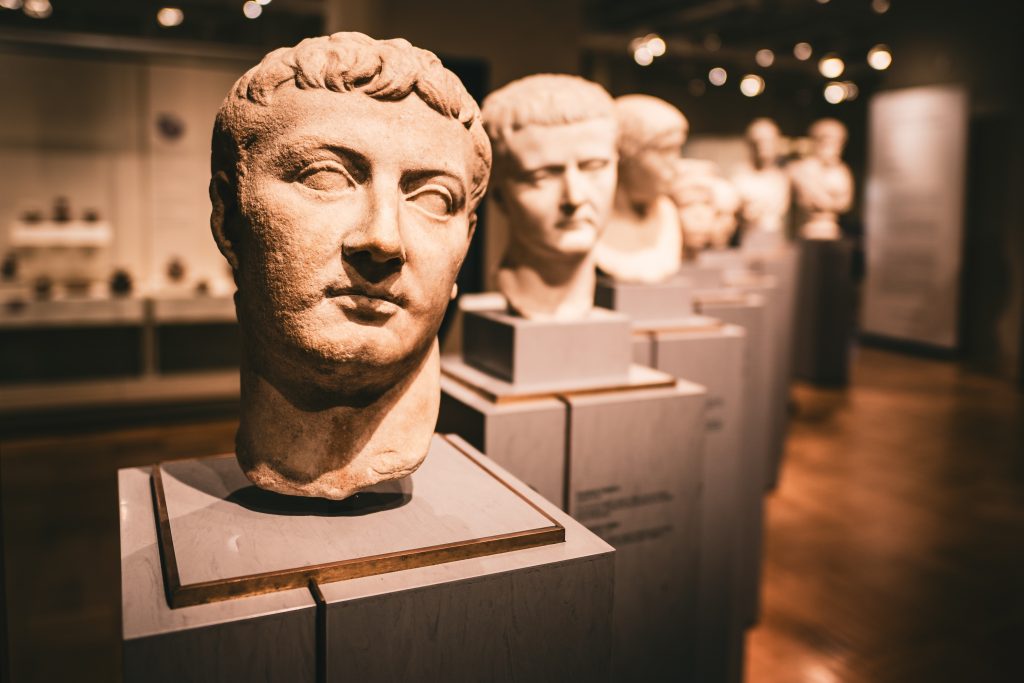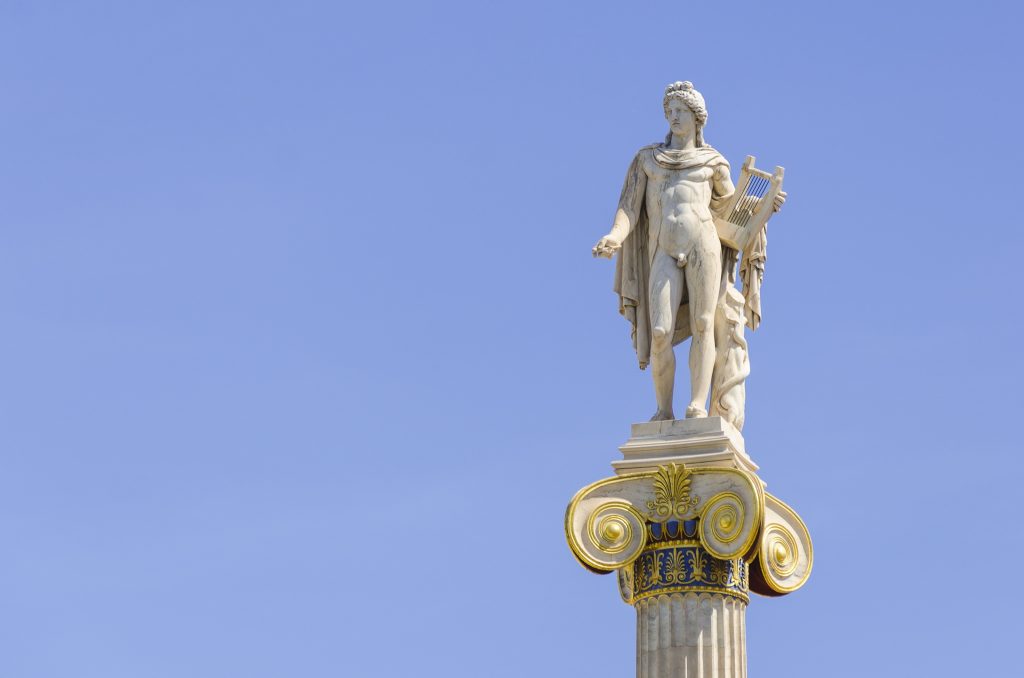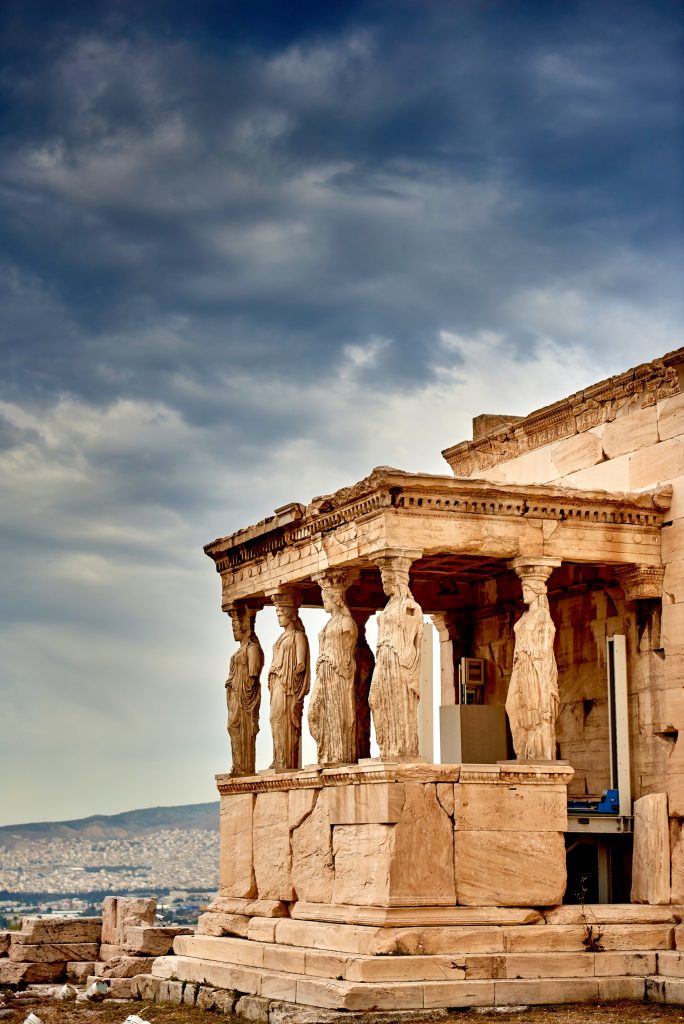
The Oresteian trilogy by Aeschylus
The Oresteian trilogy consists of three plays: Agamemnon, The Choephoroi, and The Eumenides. It is the only complete remaining trilogy of Greek dramas.
Agamemnon
Agamemnon follows the return of the victorious king following the defeat of the Trojans. The home that he is met with is not the one he left when they sailed to war. His wife is not happy at the return. Agamemnon sacrificed their daughter to appease the gods and allow them to sail to war
She has taken Agamemnon’s cousin, Aegisthus, as her lover. When the king arrives with Cassandra, oracle to Appollo, as his concubine, Aegisthus and Clytemnestra decide to kill him. Cassandra also accepts her fate and is killed.
The play ends with a reminder that revenge will follow swiftly on the heels of these actions. Surely the heir to the throne, Orestes, son of Agamemnon, will avenge his father’s death.
Agamemnon - Themes
This play examines some interesting themes. It is very interesting that Agamemnon is punished in this manner for sacrificing his daughter. This is an action that Agamemnon believed that he had to take.
Menelaus’ (the Spartan king, and brother of Agamemnon) wife, Helen, had fled with Paris, prince of Troy. Agamemnon declared war on Troy to avenge this wrong done. The play makes it clear that this wrong that Paris committed is terrible and war is an appropriate response.
Did he have to kill his daughter?
As Agamemnon seeks to sail but Artemis is angered because of all the Greek lives that will be lost. Artemis causes the wind to stop and it is prophesised that the only way to appease the god is to sacrifice his own daughter.
Agamemnon kills her and the winds pick up and they sail.
As far as Agamemnon is concerned he has had no choice in any of these decisions. He must avenge the dishonour Paris and Helen brought upon his house. In order to do this he must sail to Troy. In order to do this he must appease Artemis. In order to do this he must sacrifice his daughter.
But Clytemnestra feels equally justified. She doesn’t engage with the facts that led to Iphigenia’s death. All that the queen cares about is that her daughter is dead at her husband’s hand. So she must avenge her daughter’s death. In order to do this she must kill Agamemnon.
And thus with a perfect unity of opposites the play ensues. Agamemnon is slain. The stage is set for further revenge killings.
The Choephori
Synopsis
The Choephori translates into The Libation Bearers. This play takes place a few years after the events of Agamemnon. Orestes, Agamemnon’s son has been living in exile in Phocis. Orestes was raised with Pylades, son of the King of Phocis. Apollo threatens Orestes with a curse of disease, exile and even death if he does not avenge his father.

Orestes accepts that this is his duty and he and Pylades return to Argos in disguise. Having been away since the death of his father they travel to his grave. Here Orestes meets up with his only remaining sibling, Electra.
Together they pray to the spirit of Agamemnon to aid them in their quest for vengeance. They are also lamenting the life Agamemnon should have led. The chorus argues for them to keep their resolve and avenge their father.
Brother & Sister Unite
Together they concoct a plan to enter the palace undetected. When Orestes attempts to enter the palace he is greeted by his mother. He tells her that he has come with news of Orestes’ death.
His mother is shocked by the news and orders Orestes’ Nurse to summon Aegisthus, escorted by an armed guard, to hear the news. The nurse encounters the Chorus and they tell her to send for Aegisthus without an armed guard.
Rise of the Furies
Aegisthus arrives and is killed by Orestes. The noise summons Clytemnestra but Orestes hesitates to kill his own mother. Pylades reminds Orestes of his duty to Apollo. Orestes kills his mother and is pursued from Argos by the furies. These supernatural creatures are brought into being to bring further vengeance for Orestes blood crime. The play ends with Orestes fleeing Argos.
Agency or Agent?
This play is very different in terms of agency of the main characters and the thought that what they are doing is right. Orestes questions every step along the way. He has to be threatened by the oracle of Apollo to avenge his father before he will even return home.
Once he has returned home and meets up with his sister they are immediately on the same side of plotting vengeance but are soon turned towards reminiscing.
And when he has his mothers breast bared before him he hesitates again. At each three of these pivotal moments in the story he is forced, guided or pushed on his path by another.
In Phocis it is the oracle of Apollo who guides Orestes path. At the tomb of Agamemnon it is the Chorus of Trojan slaves. When he hesitates to kill his mother it is Pylades that firms his resolve.
Orestes really sounds like he doesn’t want much to do with the whole thing. But because of the rules of justice vengeance all the others understand that it must be Orestes who avenges Agamemnon.
And it turns out he was right as the furies pursue him from Argos at the end of the play.
The Eumenides

This play begins shortly after the events of the previous one. Orestes has fled to Delphi to be cleansed by Apollo. Apollo puts the furies to sleep and has Hermes guide Orestes to Athens so Athena can judge his case.
Orestes and Hermes leave and the furies are awakened by the ghost of Clytemnestra. The argue with Apollo for attempting to steal their power and vow to destroy Orestes as Apollo vows to protect him.
The furies catch up with Orestes in Athens as he is praying to Athena. As they toy with their soon to be victim Athena appears. Both sides state their case and Athena summons a jury to hear the case. Athena is concerned about making the judgement herself. If she finds in favour of Orestes the furies “anger falls/Like death and terror, blight and poison my land.” ln 477-478.
Athena is also concerned about finding in favour of the furies. This is because Orestes came cleansed of his crimes by Apollo and as a suppliant of her temple. Orestes has also been granted sanctuary in her city. Not a good look.
So she empanels the jury, hoping that by not making the decision herself she will avoid these outcomes.
Both sides make their cases. The jury returns its verdict. They are split six to six and Athena has to cast the deciding vote. She rules in favour of Orestes and the furies lose it. They swear to destroy Athens for taking away their ancient power.
Athena offers for them to become gods of the city. The furies rage on for a bit longer but finally agree. Justice defeats blood vengeance and Athena bribes the furies with honeyed words and promises of power to end the cycle of death.
Analysis
This play is different from the previous two again. Here we see a struggle between old gods and the new. The power of the furies appears undeniable as both Athena and Apollo are worried about them. Although, Athena appears confident that should it come to it Zeus would be able to defeat them.
But it isn’t about power. It’s an argument about what is right and just. Apollo and Athena argue for a new way, justice. The furies cling to the old way of vengeance. Aeschylus cleverly puts this on display via the trial system of the new way.
The trilogy needed to end in this sort of fashion otherwise nothing would have stopped the cycle of vengeance that had been the driving force of the plot of the other two plays.







I have noticed you don’t monetize writermuses.com,
don’t waste your traffic, you can earn extra bucks every month with new monetization method.
This is the best adsense alternative for any type of website (they
approve all sites), for more details simply search in gooogle:
murgrabia’s tools
Hi BestVeronica,
The decision not to monetise is a conscious one. I am currently growing my site and do not want any advertising to deter that growth. I have briefly looked at the options here, should I want to go down that path and at this point I certainly do not wish to.
Thanks for suggestion murgrabia’s tools. If I do look at something like this I’ll check it out.